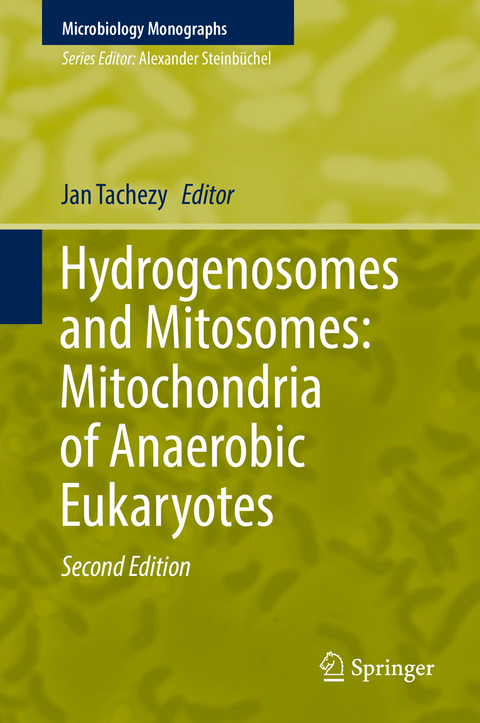
Hydrogenosomes and Mitosomes: Mitochondria of Anaerobic Eukaryotes
Springer International Publishing (Verlag)
978-3-030-17940-3 (ISBN)
The new edition focuses on the latest information on mitochondrion-derived organelles, particularly on hydrogenosomes and mitosomes. It has become more and more evident that hydrogenosomes and mitosomes are just two specific members of larger family of organelles derived to various extent from mitochondria due to adaptation to oxygen-poor environment and to the parasitic life style. Since the 1st edition, investigation of free-living protists and commensals has revealed that there is a continuous spectrum of mitochondria-derived organelles from typical aerobic mitochondria, mitochondria with stepwise loss of respiratory chain complexes and with concomitant gain of anaerobic pathways (particularly hydrogenase), via hydrogenosomes and mitosomes to the newly discovered organisms that completely lost mitochondria.
Most of the experimental data collected relates to the human pathogens Trichomonas vaginalis harboring hydrogenosomes, and Giardia intestinalis and Entamoeba histolytica with mitosoms. In principle, hydrogenosomes are hydrogen and ATP producing organelles, while the only known function in Giardia mitosomes is synthesis of iron-sulfur clusters, whereas mitosomes of E. histolytica possess the recently discovered sulfur activation pathway. Functions of other unusual mitochondria are mostly predicted based on transcriptomic/genomic analyses as corresponding organisms are not amenable to biochemical studies.
Investigations on evolution and function of mitochondria-derived organelles substantially changed conventional views on mitochondrion from textbook models of an oxygen-consuming powerhouse of cells to a large family of organelles, variables in their structure and function in which hydrogenosomes and mitosome represent the most divergent anaerobic members.Chapter 1: Introduction.- Chapter 2: The evolution of oxygen independent energy metabolism in eukaryotes with hydrogenosomes and mitosomes.- Chapter 3: Protein Import into Hydrogenosomes and Mitosomes.- Chapter 4: Structure of the Hydrogenosome.- Chapter 5: Hydrogenosomes of Anaerobic Ciliates.- Chapter 6: Metabolism of Trichomonad Hydrogenosomes.- Chapter 7: Hydrogenosomes of Anaerobic Fungi: an Alternative Way to Adapt to Anaerobic Environments.- Chapter 8: The proteome of T. vaginalis hydrogenosomes.- Chapter 9: Mitosomes in parasitic protists.- Chapter 10: The Mitochondrion-Related Organelles of Crypto-sporidium species.- Chapter 11: The Mitochondrion-Related Organelles of Blastocystis.- Chapter 12: Mitochondrion-related organelles in free-living protists.- Chapter 13: Protists without mitochondria, how it may happen?.
| Erscheinungsdatum | 24.08.2019 |
|---|---|
| Reihe/Serie | Microbiology Monographs |
| Zusatzinfo | VIII, 326 p. 52 illus., 17 illus. in color. |
| Verlagsort | Cham |
| Sprache | englisch |
| Maße | 155 x 235 mm |
| Gewicht | 661 g |
| Themenwelt | Naturwissenschaften ► Biologie ► Mikrobiologie / Immunologie |
| Schlagworte | anaerobic protists • Evolution • Hydrogenosome • mitochondria • mitosome |
| ISBN-10 | 3-030-17940-0 / 3030179400 |
| ISBN-13 | 978-3-030-17940-3 / 9783030179403 |
| Zustand | Neuware |
| Haben Sie eine Frage zum Produkt? |
aus dem Bereich


